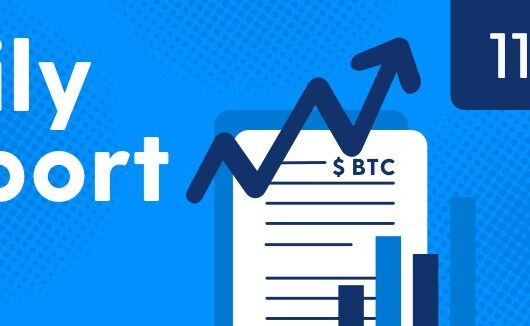Weekend Recap: Ethereum miners to increase network’s gas limit by 25%

Buckle up for more Ethereum-related news (minus any million-dollar fees), the latest on Italy’s digital currency plans, and an update on former Mt. Gox CEO’s fresh legal woes. All this and more as we look at what made headlines in crypto over the weekend.
Ethereum miners to increase network’s gas limit by 25%
Ethereum miners are in the process of increasing the network’s gas limit from 10,000,000 to 12,500,000 to accommodate for an increase in network utilisation.
Ethereum users pay gas to have their transactions included in an Ethereum block. Unlike Bitcoin, which has a fixed block size, Ethereum’s network block size is bound by the amount of gas that can be spent per block. Previously, its limit was 10,000,000 units of gas, but according to Etherscan, the gas limit now hovers around 12,000,000.
According to Bitfly, the parent company of Ethereum mining pool, Ethermine, a gas limit increase should give Ethereum the capability to handle around 44 transactions per second (tps), instead of 35. Notably, a gas limit increase also increases the resources required to run and maintain nodes for validating transactions on the network.
The #Ethereum miners are voting to increase the Block Gas Limit from 10,000,000 to 12,500,000. ⛏️
In theory, this means that the Ethereum network now has the capabilities to handle ~44 transactions per second, instead of ~35.
Another huge milestone for the community.??
— Bitfly (@etherchain_org) June 19, 2020
The most recent significant gas limit increase by miners happened in September 2019, increasing the limit from 8 to 10 million.
Last week we published a more detailed explanation of Ethereum fees and how gas works.
Italian banks looking to pilot a digital euro
The Italian Banking Association (ABI) announced on Thursday that its banks are willing to pilot a digital euro.
ABI, which is comprised of over 700 Italian banking institutions, expressed its desire to speed up the implementation of a digital currency backed by the European Central Bank (ECB) through participation in related projects and experiments. Last year, ABI set up a working group to research digital and crypto-assets.
The group shared ten considerations for a digital euro and prioritised the need for a digital currency framework to be fully compliant with EU regulations in order to gain the public’s trust.
Its second guideline indicated that Italian banks are already working with distributed ledger technology (DLT), referencing the Spunta project. The project formed part of ABI Lab’s initiative to integrate blockchain to expedite the processing of interbank settlements.
The group believes a central bank digital currency (CBDC) could lead to powerful innovation within the traditional banking system, enabling P2P transitions, machine-to-machine transactions, and the ability to manage the exchange rate and interest rate risk thanks to the programmable capabilities of digital currencies.
According to the announcement: “A programmable digital currency represents an innovation in the financial field capable of profoundly revolutionizing money and exchange. This is a transformation capable of bringing significant potential added value, particularly in terms of the efficiency of the operating and management processes.”
Italy is one of a number of countries looking at digital currency projects to alleviate legacy-based shortcomings within the banking sector. Earlier this year, France’s central bank called for CBDC experiment proposals. The Dutch Central Bank also announced the Netherlands’ interest in trialling a digital euro.
US bank deposits skyrocket
Figures from the Federal Reserve indicate banks have more cash than ever before, largely owing to the coronavirus pandemic.
In total, deposits increased by $2 trillion since January, and according to CNBC, grew by $865 billion in April alone. Record amounts of cash were pumped into US bank accounts to help with the COVID-19 mayhem. June figures indicate money in bank accounts now sits at a jaw-dropping $15.4 trillion.
The massive influx comes as the US government shelled out trillions of dollars to assist with the economic downturn. An unlimited bond-buying program facilitated by the Federal Reserve, plus individuals’ hoarding of cash has swelled coffers.
The largest US banks – JP Morgan Chase, Bank of America and Citigroup – all experienced unprecedented monetary growth, CNBC reported. According to the news outlet, there’s such a surplus of cash, banks aren’t quite sure what to do with it.
Economist Stephen Roach recently predicted the seemingly endless supply of cash, globally and in the US, could lead to a US Dollar price crash.
Mt. Gox CEO’s scrapped appeal
A US court rejected an appeal from the former CEO of the defunct crypto exchange, Mt. Gox, to drop the fraud charges against him.
Mark Karpeles has faced legal troubles since his Bitcoin exchange went into liquidation after a hack in 2014. In January, Karpeles asked a US court to dismiss the fraud lawsuit against him.
By 2014, the Tokyo-based exchange handled more than 70% of the global Bitcoin trading volume. The exchange closed down in February 2014 following the theft of 850,000 BTC, worth around $450 million at the time.
Karpeles argued that Gregory Greene, a former Mt. Gox customer and the last remaining plaintiff suing him for fraud and negligence, had changed his argument mid-case. However, on Tuesday, US District Judge Gary Feinerman scrapped the appeal and ruled in favour of Greene. The case is expected to go ahead, with Greene’s legal team to present their motion at a later date.
Greene’s case against Karpeles goes back to 2014 when Mt. Gox abruptly stopped trading and sought bankruptcy protection after its wallets were emptied.
Greene’s complaint sets out to serve over 24,000 other former Mt. Gox customers around the world, accusing Karpeles of fraud and negligence on their behalf. All customers lost access to their funds once the exchange went down.
The charges against Karpeles alleges the former CEO illegally assumed control of Mt. Gox customers’ assets; that he was negligent in safeguarding users’ Bitcoin from misuse; and that he acted deceptively by misrepresenting the services the exchange provides.
Despite the fact Karpeles was handed a suspended sentence last year by the Tokyo District Court for his role, Greene is still set on suing. Former Mt. Gox users are still waiting to have their losses repaid to them.
Keep reading…
Crypto in 2020: The year so far
 Discover
Discover Help Centre
Help Centre Status
Status Company
Company Careers
Careers Press
Press

